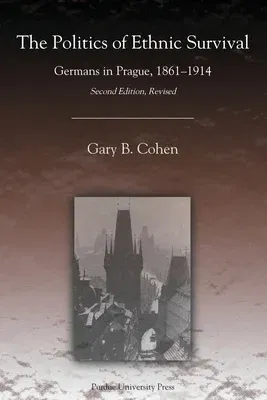This book examines how one of Imperial Austria's principal ethnic
conflicts, that between Czechs and Germans, developed in one of the
major cities during the era of industrialization and urban growth. It
shows how the inhabitants of Prague, the capital of Bohemia, constructed
and articulated ethnic group loyalties and social solidarities over the
course of the nineteenth century. The German-speaking inhabitants of the
Bohemian capital developed a group identification and defined themselves
as a minority as they dealt with growing Czech political and economic
strength in the city and with their own sharp numerical decline: in the
1910 census only seven percent of the metropolitan population claimed
that they spoke primarily German. The study uses census returns,
extensive police and bureaucratic records, newspaper accounts, and
memoirs on local social and political life to show how the German
minority and the Czech majority developed demographically and
economically in relation to each other and created separate social and
political lives for their group members. The study carefully traces the
roles of occupation, class, religion, and political ideology in the
formation of German group loyalties and social solidarities. The social
relations which bound together the members of the German-speaking
minority and the social boundaries which separated them from the Czech
majority at the end of the nineteenth century proved to be selective,
and considerable contact went on across the lines in many facets of
individuals' everyday life. As the German minority developed a shared
group life, what came to define them and to separate them from the Czech
majority was a shared Austro-German ethnic and national loyalty, an
Austro-German national liberal ideology, the defense of common
middle-class and lower-middle-class social and political interests, and
a shared German public life. Both German-speaking Catholics and Jews
could share in the sense of German community and group solidarity,
provided they upheld middle-class liberal values. The bonds of community
for the middle-class and lower-middle- class Germans in Prague
established in the 1860s tended to exclude German-speaking wage laborers
and lower middle class radical nationalists, who might challenge liberal
national values. Despite all the efforts to strengthen German community
solidarity and combat assimilation of German-speakers with the Czech
majority from the 1880s to after 1900, the organized German community
could do little to prevent the absorption of working-class
German-speakers into the Czech population of the industrial districts.


